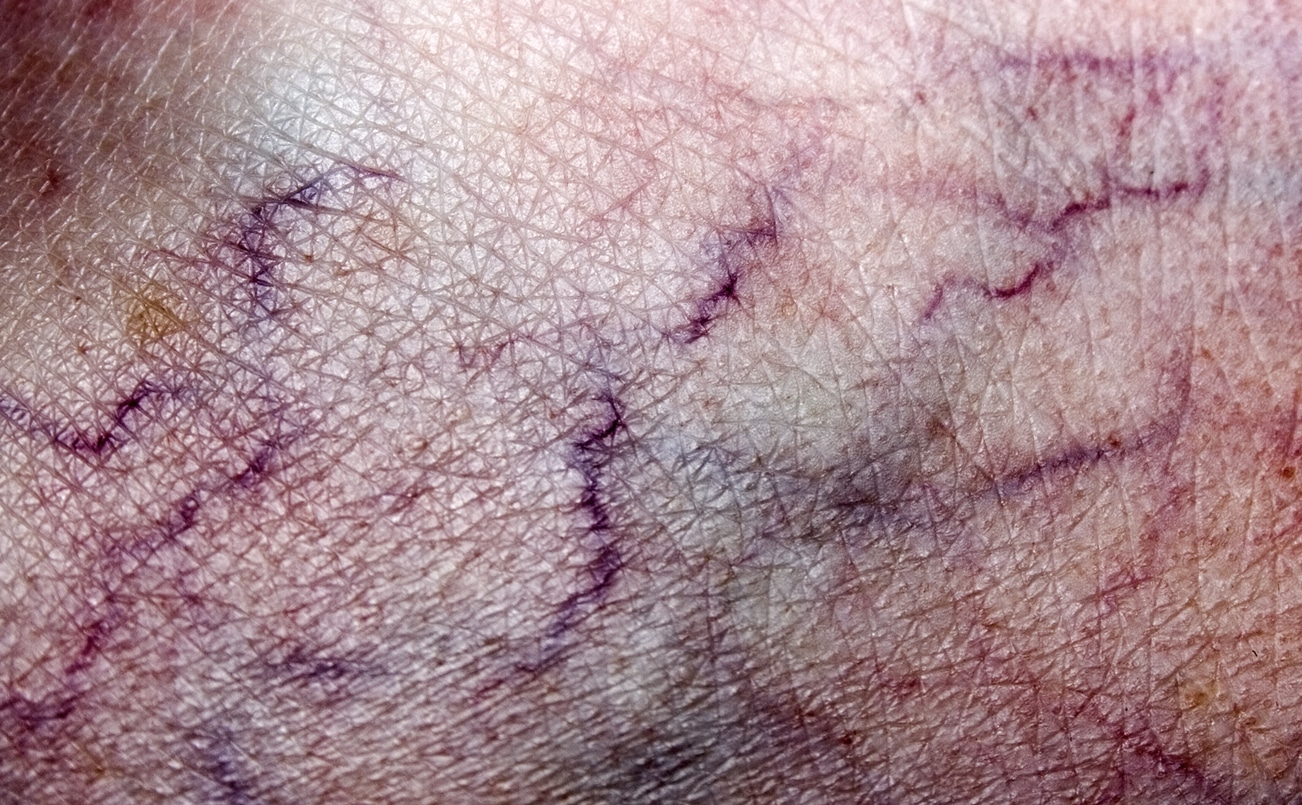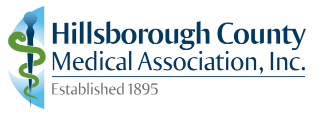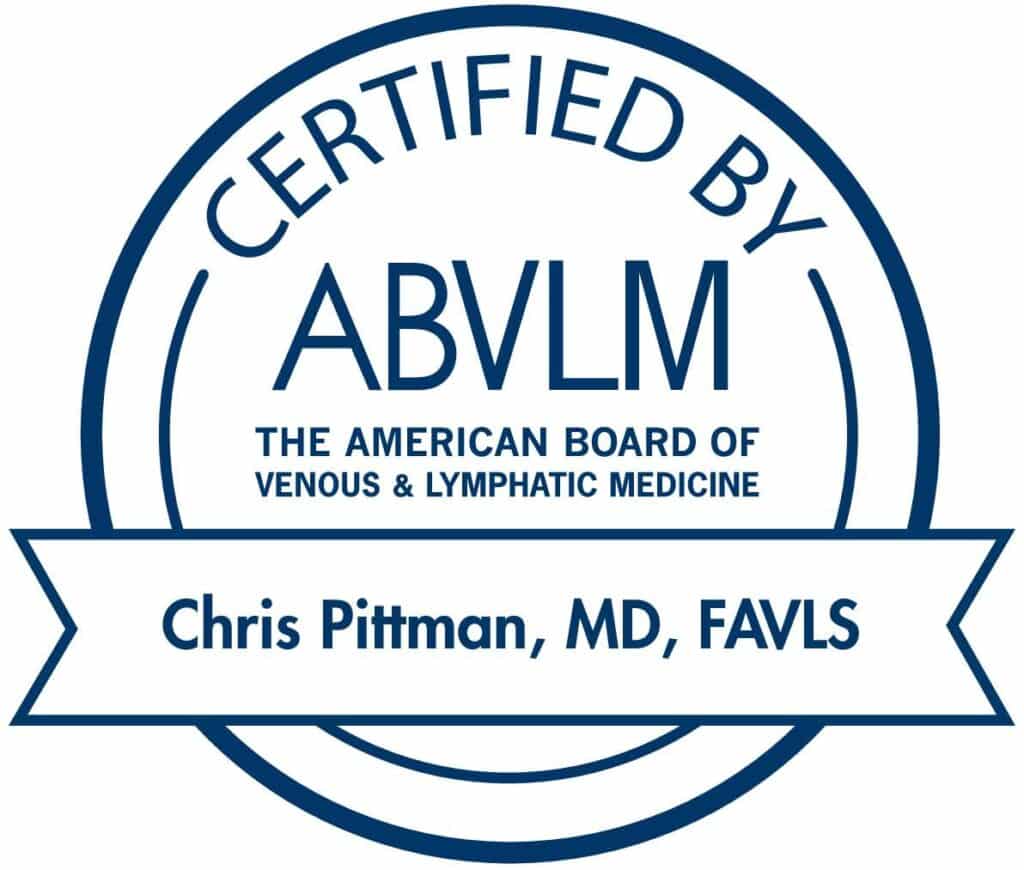If you suffer from varicose veins, you may be familiar with their common symptoms — pain, swelling, throbbing, and a “heavy” feeling in the leg. But you should be aware of another potential symptom, which can sometimes be alarming — spontaneous bleeding.
Varicose veins occur when the valve in the large leg vein fails to pump blood back to the heart. The blood then stagnates and pools in the vein, stretching the vein wall to the point where knotted blue ropes emerge on the skin’s surface. If this condition is left untreated, it may take only a minor scrape or bump to cause bleeding from these veins. The bleeding can even occur “spontaneously” — the longer pressure builds within the walls of the veins, the more likely the vein will break open and bleed.
Protecting Varicose Veins from Spontaneous Bleeding
Although only surgical techniques can fully heal your varicose veins, there are nonetheless some precautions you can take to help ensure your swollen veins won’t rupture. First of all, you may have to avoid certain activities. Taking warm baths or showers dilates the veins, which leads to a surge of blood collecting in the vein. If the vein walls cannot contain this increase in blood, it may come to the surface.
Second of all, patients must be careful not to injure the affected legs. Even a slight brush against a piece of furniture can result in injury. In addition, older people with thinner, more delicate skin are more prone to bleeding from their varicose veins.
What to Do if Your Varicose Vein Bleeds
Above all, remember that seeking urgent, professional medical assistance is always the best policy. But to address mild bleeding at the moment, a good practice is to quickly cover the wound with a gauze pad or cloth, then apply pressure. Lie down and elevate your legs above your heart to help slow the blood flow.
After such an incident you may need to visit a vein specialist, who can stitch up the vein after fixing a tourniquet above the affected vein. The specialist will also put on a proper dressing, and perform more detailed tests on your varicose vein.
Remember, if the bleeding cannot be controlled, you should seek immediate treatment at an emergency room. Individuals on blood thinners may lose a significant amount of blood if not given prompt medical attention.
Prevent Bleeding by Treating Varicose Veins
The best way to prevent spontaneous bleeding from varicose veins is to treat the underlying cause. That means seeking treatments that remove or seal off the damaged vein. One study of 14 varicose vein patients experiencing bleeding concluded that surgical removal of the vein, or closing it off with sclerosing agent in a minor surgical procedure, effectively eliminated bleeding incidences.
At Vein911® Vein Treatment Centers, we offer a full range of treatment options for varicose veins and spider veins. Each is performed by experienced professionals in a caring, comfortable setting. These therapies are performed with minimal anesthesia on an outpatient basis, and after the procedure, you should be able to resume your normal daily activities immediately. If you’d like to know more, contact the Vein911® Vein Treatment Centers for a telemedicine consultation.











